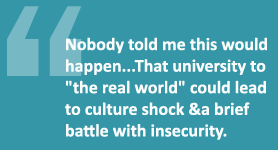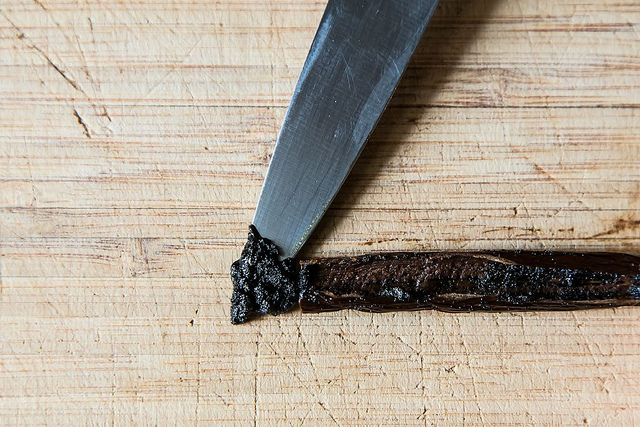By: Dawn of Time
On a plane to Houston, I was asked my career. “What do you do?” A polite-looking, older woman turned to ask. We hadn’t so much exchanged a friendly hello before she posed the question, leading me to believe I appeared interesting – a thought I liked. “I am a food scientist.” I said proudly. “A what? A food…? Oh… really?” She questioned her own understanding.
I think about what it means to declare my chosen profession, and how I got to be here. I often find myself so proud that I found this little gem of a career hidden behind doctors, lawyers, and engineers (though I argue that I myself am an engineer at times). Only a food scientist knows how unique we all are, but should we let this get to our heads?
After a few minutes of blowing her mind with the details of my work (my interpretation, of course), she abruptly ended the conversation by pulling out her newspaper to read. No “that’s interesting” or “wow, I never knew…” Nothing. That was the end of that conversation.
Of course, I understand that not everyone shares my passion. Not everyone becomes excited when they’ve successfully pasteurized sliced strawberries without ruining the color and textural integrity of the fruit. No, that’s just me… Well, and my bosses, I’m sure.
Nobody told me this would happen. Not one person told me that a transition from university (where I was stimulated by education, the study of food, and surrounded by others who matched my enthusiasm) to “the real world” could lead to culture shock and a brief battle with insecurity.
It didn’t take long to find work after graduating college. In fact, I felt very lucky to find my job, especially in the geographical region I most wanted to live. I couldn’t have been happier. Then, in the first few days in my new, fancy, ‘I’ve made it!’ position, I realized I was one of only a couple people in my company who actually enjoyed their job. The realization was harsh. All of a sudden, I felt I had to stifle my excitement. I changed my behavior, toned down my enthusiasm, and started commiserating my coworkers’ experiences. Frustrated by the fact that I didn’t share their misery, I resented that I felt I had to suppress much of what made me… me. Most of all though, I hated that they hated their jobs so much. Here I was… I landed right where I thought I wanted to be, and they could care less.
This realization was the beginning of my first identity crisis. Who was I, if not the confident food scientist that had an answer (or at least a theory) for every question about food? I became quiet and felt afraid to be ambitious for fear of judgment by my peers. This lasted for what felt like forever (but really just a couple months) until I made a very conscious choice. At that time, I knew the only way to claw my way out of my insecurity was to shut-up about my degree and all that I know, and just focus on learning how to do my job. So I did. Slowly, it started to pay off. With every success (big or small), my confidence grew. As it turned out, it was tough to hide my happiness when something went well, and equally difficult to hide my disappointment when something failed. There it was at times, my personality. As I came out of my shell, I was surprised to find that people responded well, and ultimately rallied behind my projects. At some point, I had gained their respect. Maybe it just took time; or perhaps it was because I let them teach me. Needless to say, I’ve learned a lot in the years since graduation.
I still haven’t figured out how to respond to people who blame food science for the obesity epidemic or attack my profession based on the fact that Salty snacks don’t grow on trees. I am comforted by the fact that I still quite proudly spill my enthusiastic guts out every time a polite stranger asks me what I do for a living. Even if they lose interest after a minute, I don’t.





